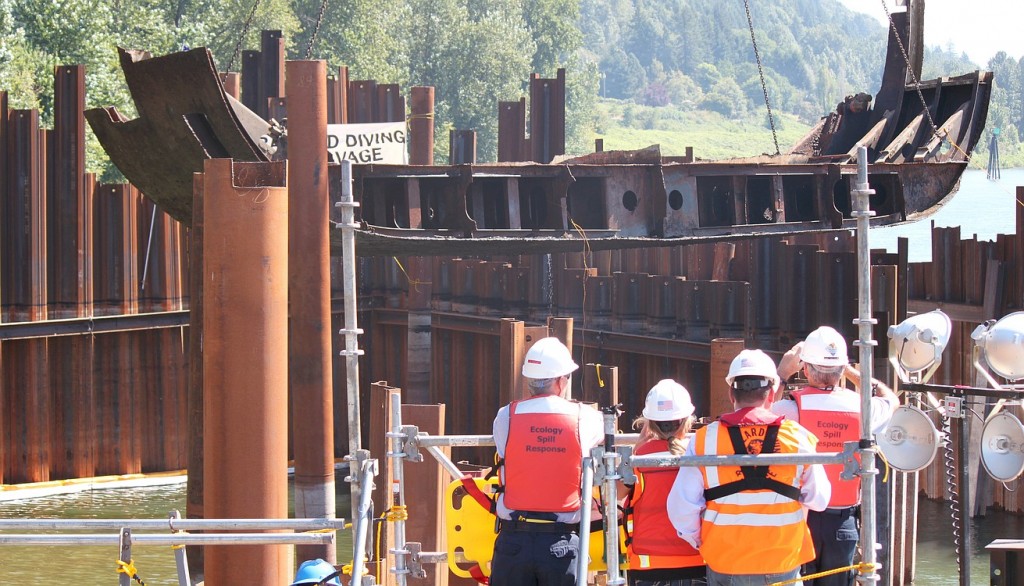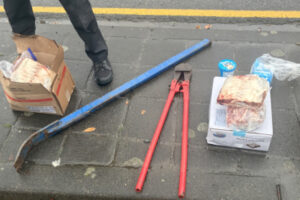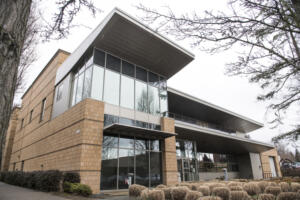A 10-month effort to collect 38,397 gallons of oil products; 3.56 million pounds of cleaned and recycled steel; 4,850 pounds of asbestos; and 1.25 million pounds of debris, is what U.S. Coast Guard officials said it took to avert what could have been an “environmental disaster” in the Columbia River near Camas.
The recent removal of the final sheet pile cofferdam from the barge SS Davy Crockett work site signals the true end of the multi-agency, $22 million endeavor that prevented the release of oil and other hazardous materials from the derelict Liberty ship.
Constructed in April 2011, the 850-linear foot cofferdam and impermeable liner allowed crews to systematically dismantle the barge in the river and keep any pollution generated by the project to be contained and properly handled within, according to the Department of Ecology.
“The removal of the cofferdam concludes a 10-month response project that successfully averted an environmental disaster on the Columbia River,” said Capt. Danny LeBlanc, the Coast Guard’s incident commander. “Deconstructing the 431-foot Davy Crockett within a river system was quite challenging in itself.
“The area’s sensitive fisheries and wildlife added an additional layer of complexity in which the Unified Command employed regular consultations with governmental agencies, scientists, environmentalists and tribal stakeholders to mitigate,” he added. “Our final measuring stick of success was that the project was completed with no reported harm to fish or wildlife, and no reportable injuries to the workers.”





